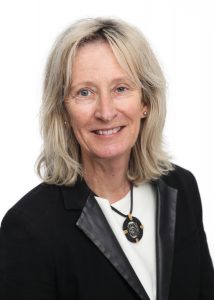Watchdog recommends measures to boost women’s representation in judiciary and law firms

Professor Caroline Fennell
Ireland should take measures to improve women’s representation in the judiciary and in leadership roles at law firms, the Irish Human Rights and Equality Commission (IHREC) has said.
In a submission to the Citizens’ Assembly, which is currently examining the issue of gender equality in Ireland, the human rights watchdog noted an increase in the number of women in the legal profession.
However, women remain poorly represented on the bench and women are half as likely to become partners in law firm than their male colleagues, the submission warns.
The Commission recommends that the newly-established Judicial Council should take measures to introduce the representation of women in the judiciary.
It also recommends that the Legal Services Regulatory Authority (LSRA) and the Government consider measures to tackle “gender stereotyping” in the justice system.
Measures could be taken to encourage flexible hours, flexi-time job sharing, part-time work, shorter hours, remote working, and term-time working in solicitor firms, it suggests.
The Commission also proposes that equality training is incorporated into barrister-at-law and solicitor training, as well as additional measures to ensure the health, safety and well-being of all men and women lawyers.
Overall, the submission makes 32 recommendations, including the introduction of a statutory system of gender quotas for company board memberships and a statutory footing for gender balance on State boards.
Acting chief commissioner Professor Caroline Fennell said: “In public life, whether within the professions, business, sport or politics there are historic and persisting barriers to gender equality. There are also new and menacing challenges such as gender focused online harassment, all of which needs to be tackled head-on.
“The timing of this Citizens’ Assembly specifically focused on achieving gender equality affords a real opportunity to create political momentum to tackle inequalities, and this work must inform the agenda of any new government.”










